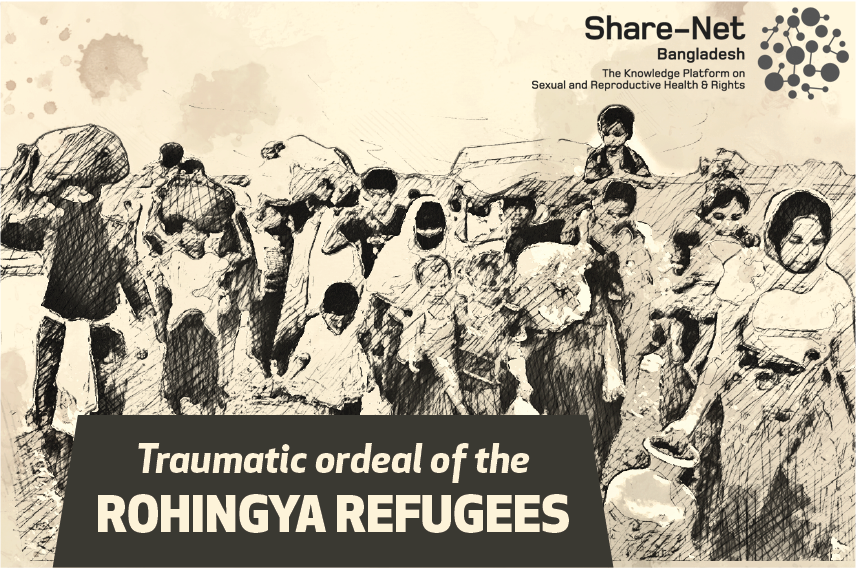Traumatic Ordeal of Rohingya Refugees
Rohingya refugees found home away from the Burmese violence in Cox’s Bazar from August 2017. Since then, despite the support of national and international agencies, the refugees are in crisis of food and safety.
Skye Wheeler, Researcher, Women’s Rights Division went into the refugee camp in Cox’s Bazaar to interview women and girls who have escaped the horror of the Burmese uniformed soldiers. The refugees’ fled from mass genocide and vicious rape, arriving at the camp starved and traumatized from the brutality.
International aid is being provided for the refugees but reproductive healthcare did not reach them yet adequately.
Wheeler, after her study with the agencies working in the camp, sums up in her article the reasons for the poor reproductive healthcare:
- Registered NGOs struggle to get their new program approved by the government.
- Long-acting reversible contraceptives (LARC) are only available upon prescription.
- Many refugees are not aware that abortion is legal in Bangladesh.
- Lack of long-term funding.
The Inter-agency Working Group on Reproductive Health in Crises (IAWG), released a statement observing that post rape care for the refugees is almost insignificant.
The study further identified few crucial steps that need to be taken into action by the government, related agencies and other service providers:
- Investing in accommodation for women and girls.
- Access to post-rape care, including menstrual regulation and emergency contraception.
- Implementing SRH health responses.
- Investing in health services for new sites.
Read Skye Wheeler’s full article Here
(IAWG) Statement Here


